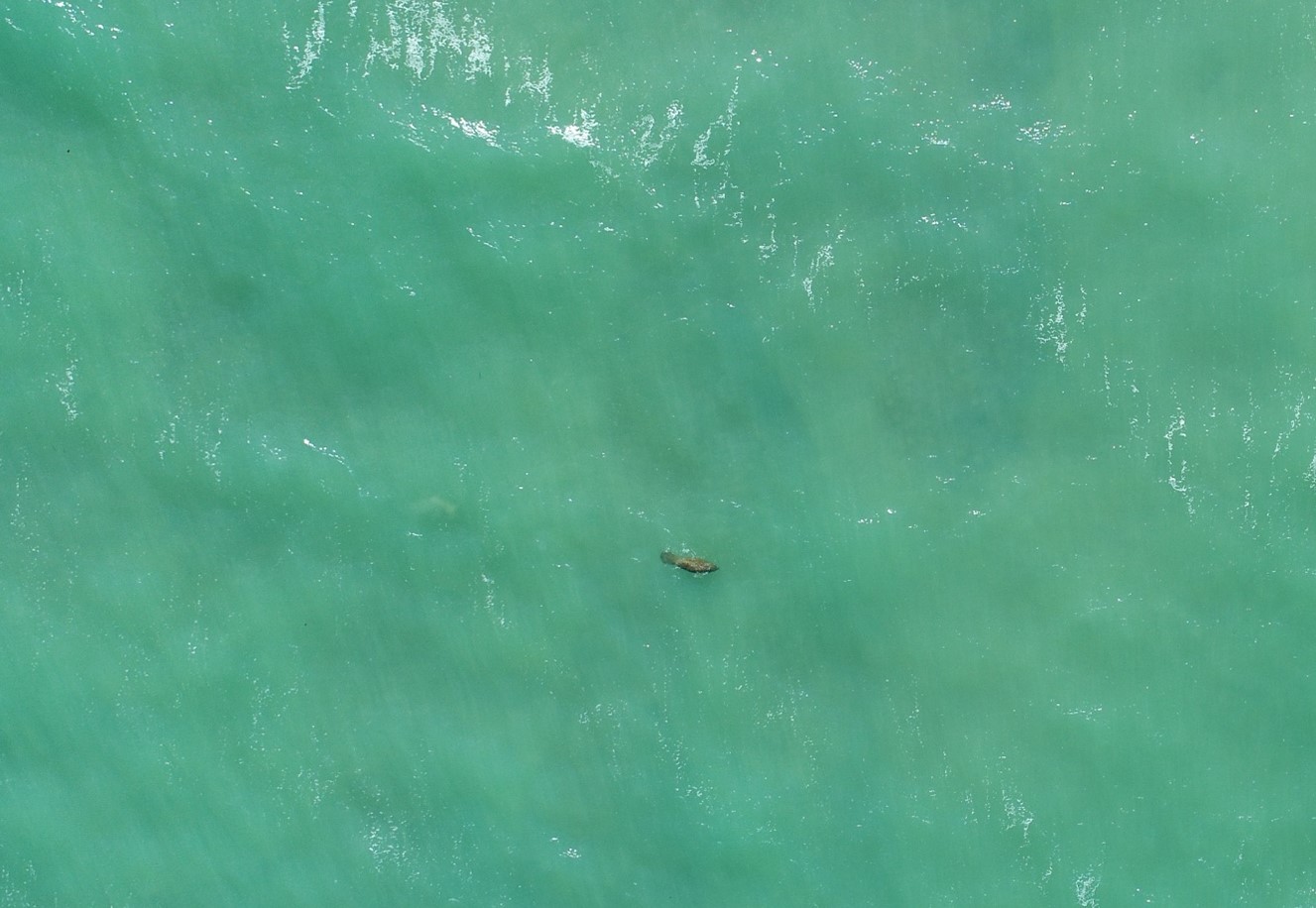A new project for the training of junior researchers has been approved.
News

Image of a manatee recorded by a drone monitored by students from the Federal University of Alagoas.
Richard Ladle had a new project approved entitled "Training of young researchers in innovative tools and analyses for studies in ecology and biodiversity conservation in the Tropics" to train four young Brazilian researchers from the Federal University of Alagoas in Europe during 6 months. The project is fully funded by Brazil´s National Council for Scientific and Technological Development (CNPq).
The junior researchers (PhD students) who are participating in the training are Iran Campello Normande, Anna Ludmilla da Costa Pinto Nascimento, Carolina Neves Souza, and Ana Carla Rodrigues, all from the Postgraduate Programme of Biodiversity and Conservation in the Tropics. They will develop their doctoral theses and innovative publications in European and American universities.
The project brings together scientific development through cutting-edge research and data analysis with human actions and biodiversity conservation. It will be an immersion of six months of doctoral work in partnership with renowned institutes at the universities of Porto, King’s College London, the University of Helsinki, and the University of Indiana.
The contribution to the training and improvement of young Brazilian researchers strengthens the inclusion of Brazilian research in the international scenario through publications, in addition to having an immediate and lasting return to participating institutions and society.
These are some of the aims:
- Train in new technologies and data analysis in the field of tropical ecology and biodiversity conservation.
- Machine learning training for satellite image classification regarding environmental features and anthropogenic impacts in order to identify ecological and movement characteristics of marine manatees (Trichechus manatus);
- Training in the Zonation software, a new methodology for spatial conservation planning, to identify priority areas for the conservation of small mammals in the Caatinga that take into account future scenarios of climate change and, therefore, optimise the allocation and impact of limited resources for conservation of the biome;
- Training in machine learning and analysis of feelings (positive, negative, or neutral) in textual content related to Brazilian protected areas on social networks;
- Training in data analysis for valuing ecosystem services (Nature's Contribution to People) that are created and strengthened by participatory management actions, integrating biodiversity conservation, sustainability, income generation, and quality of life for local populations.

Image of a manatee recorded by a drone monitored by students from the Federal University of Alagoas.